CNN
—
Traveling to China as a foreigner isn’t the simplest affair.
Visa applications can be complicated, while international flights are limited and more expensive right now due to lower demand and higher costs for many airlines to fly around Russian airspace.
And once you manage to wade through all of that, navigating this highly automated society with its own digital ecosystem can be intimidating – particularly for first-time visitors.
But things may be changing.
China has been amping up efforts to lure international travelers since reopening its doors following the pandemic at the end of 2022 by introducing more welcoming policies – and it’s asked the private sector to help, too.
The country now offers visa exemptions for dozens of nationalities, as well as a 144-hour visa-free transit policy at a growing number of ports of entry.
Meanwhile, mobile wallet giants like Alipay and WeChat have made their apps and payment processes more foreigner-friendly by simplifying their lengthy set-up processes and accepting international credit cards.
Hotels and attractions are also being asked to accept international credit cards, which aren’t popular among merchants in China. Some cities like Beijing have launched all-in-one passes that allow travelers to electronically pay for things like attraction admissions and public transit.
Looking at the stats alone, these measures seem to be working.
China welcomed about 14 million foreign visitors in the first half of 2024, a 152.7% increase from 2023, according to the country’s National Immigration Administration. Around half of those travelers entered the country under various types of visa-free policies.
The number is still a long way off from 2019 figures, when some 98 million foreign visitors traveled to the country, but some in the industry are encouraged by the upward trend.
“Thanks to the new 15-day visa-free policy for some countries, we have seen an increase of tourists from those countries in the last year or so,” says Denny Tian, a travel specialist and manager at The China Guide, a Beijing-based private-tour travel agency.
Gabriela Correia, 25, a doctor from Portugal, visited Shanghai and Beijing in June this year with her American boyfriend, entering the country under the 144-hour visa-free transit policy. It allows travelers from 54 countries (including Portugal and the US) on their way to a third country to make a stopover in one of several designated Chinese regions for up to six days.
“It is important to note that planning a trip to China comes with more challenges than most places in the world,” says Correia, who has visited 47 countries so far.
“The amount of information you find online is limited due to the relatively small number of Westerners going to China and because Google Maps is restricted in China.”
Travel specialist Tian tells CNN Travel the language barrier has long been a big challenge for international travelers.
“Many places only have Chinese information,” he says. “Most of the service staff do not speak English.”
But he says there are ways to overcome these difficulties like downloading a translator app. Meanwhile, some airports have been making an extra effort by hiring multilingual staff to welcome visitors in different languages.
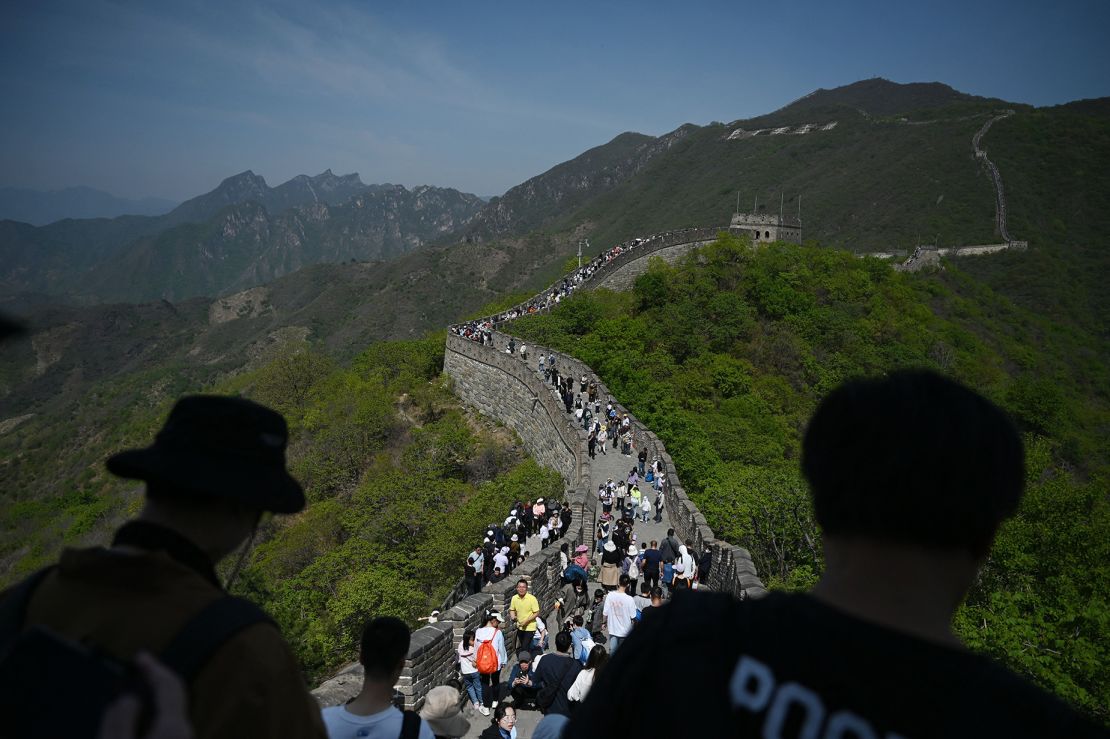
“Not knowing Chinese definitely came with its challenges but I would say that made this trip even more fun,” says Correira.
“People are very welcoming and make an effort to make it work. We had a lovely experience in a tea specialty restaurant even though none of the workers could speak English. We used the Google Translate photo feature to translate the menu and made it work out. We ended up getting cheesecake while we thought we were getting cheese bread for starters but who doesn’t like to have an extra dessert?”
The doctor says she used a travel SIM card that came with a virtual private network (VPN) to access her usual mobile apps such as Google Translate. (More on this in the Q&A section below.)
Correira also notes that many restaurants ask diners to order through a QR code that is linked to Alipay, which now has a translation function incorporated into the app, allowing foreign visitors to know what’s on the menu.
Although the couple managed to have a great time traveling independently without knowing Chinese, they decided to hire a private guide for their visit to the Great Wall “as it facilitates logistics and allows you to go to (lesser-traveled) sections of the Wall.”

The couple was most impressed by the “diverse and rich culinary traditions,” the contrasting futuristic and historical colonial architecture along the waterfront of Shanghai as well as the views and a toboggan ride at Mutianyu Great Wall in Beijing.
Correira says that the trip has changed some of her perceptions about China and she is already planning their next trip.
“I would say right now Zhangjiajie National Forest Park is at the top of my list in my next visit to China,” she says, referring to a national park in Hunan province that is said to have inspired the landscapes in the movie “Avatar.”
Planning your own dream trip to this vast nation? We’ve put together a guide to some of the most frequently asked questions regarding China travel.
Here’s where things get really confusing. There have been a lot of announcements and changes in recent months, and we will try to cover the most notable.
China has mutual visa exemption agreements with 23 countries – including Singapore and Thailand – and a new unilateral visa-free policy for 15 additional passports.
The 15 countries now enjoying visa exemptions until December 31, 2025 are Austria, Australia, Belgium, France, Germany, Hungary, Ireland, Italy, Luxembourg, Malaysia, the Netherlands, New Zealand, Poland, Spain and Switzerland.
Citizens of these countries can visit China for no more than 15 days continuously without a visa.
Given how quickly things change in the diplomatic world, it’s wise to visit the China Visa Application Service Center or your country’s foreign affairs website to find out the latest on entry agreements before booking your trip.
If your country isn’t on the visa-free list or you don’t want to visit China on a stopover (more on that below), you will need to apply for a tourist visa.
On that front, there’s good news for Americans. China tourist visa application processes have been easier for US citizens since January 2024; applicants are no longer required to submit proof of a round-trip air ticket, hotel reservation, itinerary or invitation letter. (The Chinese consulate general in New York has put together a list of documents you now need to apply for a tourist visa on its website.)
Citizens of other countries in need of a tourist visa can head to China Online Visa Application to find their nearest processing center and fill in the online application form.
What are the 144-hour and 72-hour visa-free transit policies?
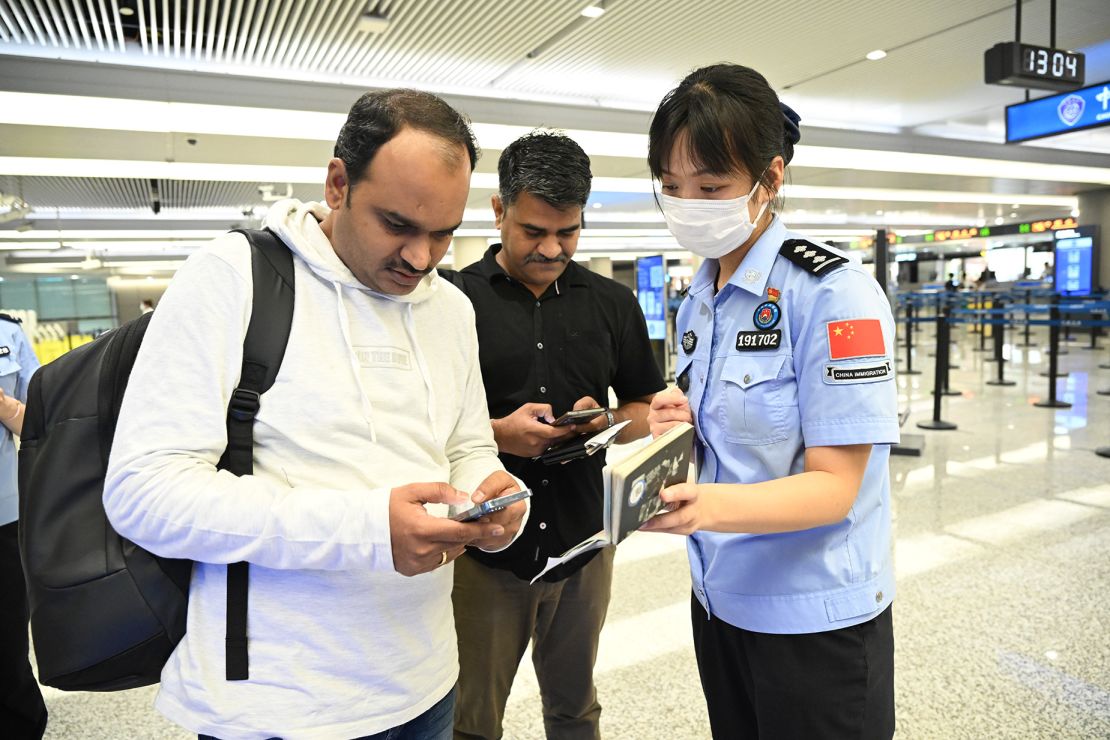
China’s two visa-free transit policies allow travelers from certain countries to enter China for up to three or six days – but only if they’re transiting to a third destination, outside of China, afterward.
Japan, South Korea, the United Kingdom and the United States are among the 54 countries eligible to transit via China for up to six days.
In both cases, travelers need to present purchased travel documents – i.e. connecting tickets for flights, trains and ships – as proof of their next stop (one that is different from the travelers’ original departure country) before entering China. (Hong Kong and Macao are considered a third destination under these policies.)
However, travelers visiting under these visa-free transit programs have more restrictions in terms of places they can visit.
They can only travel within the 41 designated ports of entry in 19 Chinese provinces – including Beijing and Shanghai.
That means that if you land in Shanghai, then you can only stay within the city and its neighboring Jiangsu and Zhejiang regions. Exploring the country via China’s vast high-speed railway network is not an option for those entering under the two transit visa schemes.
Correira says she and her boyfriend ended up making a trip to another part of Asia in between their visits to Shanghai and Beijing so they could get two visa-free transit permits for each visit. (The Shanghai government has put together a great explainer about the visa-free transit policy here.)
Travelers aren’t required to join a guided tour or a group tour for most parts of China if they have the appropriate visa or if their passports qualify them for the visa-free exemption policy – with a major exception being the Tibet Autonomous Region.
International travelers are required to obtain a Tibet Travel Permit before entering the region and applications must be submitted through a certified travel agency.
Travelers need to join a group tour or book a tour guide, a driver, a car and accommodation via a certified travel agency to be eligible for the permit.
Are visas needed for Hong Kong and Macao?
Hong Kong, Macao and mainland China have different visa requirements.
Hong Kong offers visa-free entry to citizens of about 170 countries for seven to 180 days. You can check out your specific visa requirements on the Hong Kong Immigration Department’s website. (Under Part II on the web page.)
Some 80 international citizens can enter Macao without a visa. Check out Macao’s government website for more details.

The southern Chinese island province of Hainan – often referred to as the ‘Hawaii of China’ has a more lenient visa policy than the rest of the mainland.
It offers 30-day visa-free entry for passport holders from 59 countries. Travelers entering under this policy are not permitted to leave the island to visit other parts of China.
Can I use my smartphone and apps in China?
You can use your own mobile devices in mainland China, however, some of the most popular apps for the rest of the world – including Instagram, TikTok, Facebook and Google – are blocked.
Thankfully, there are ways around this. If your phone is connected through an international data roaming plan or a travel SIM card with a VPN, you’ll still be able to access these apps.
When you connect to local Wi-Fi, access will be suspended again.
“A lot of websites we Westerners use are restricted in China,” says Correira. “The Wi-Fi in restaurants and hotels doesn’t allow us to use Google, Instagram, Facebook or WhatsApp and if you end up buying a local SIM at your arrival these will have the same restrictions.
“My tip: definitely use an e-SIM that you can even buy in advance and activate there and bypass that to be able to keep in touch with friends and family.”
For a flat fee, e-SIM cards from companies like Airalo and Airsim will ensure your devices work in China – and that includes access to all essential apps.
“Before traveling to China, many people worry about making payments,” says travel specialist Tian.
“They think that people in China are all using mobile payments and cash is no longer accepted. But actually, cash is still accepted everywhere. Just some businesses may not have change to give.”
International credit cards are not a ubiquitous form of payment at most local businesses and attractions.
WeChat Pay and Alipay are among the mobile wallets most Chinese businesses accept. Both apps can now be connected with an international credit card with a transaction limit of US$500.
To increase the limit, you can verify your identity by uploading identification documents and entering your phone number. It will take a few days before the increase is approved.
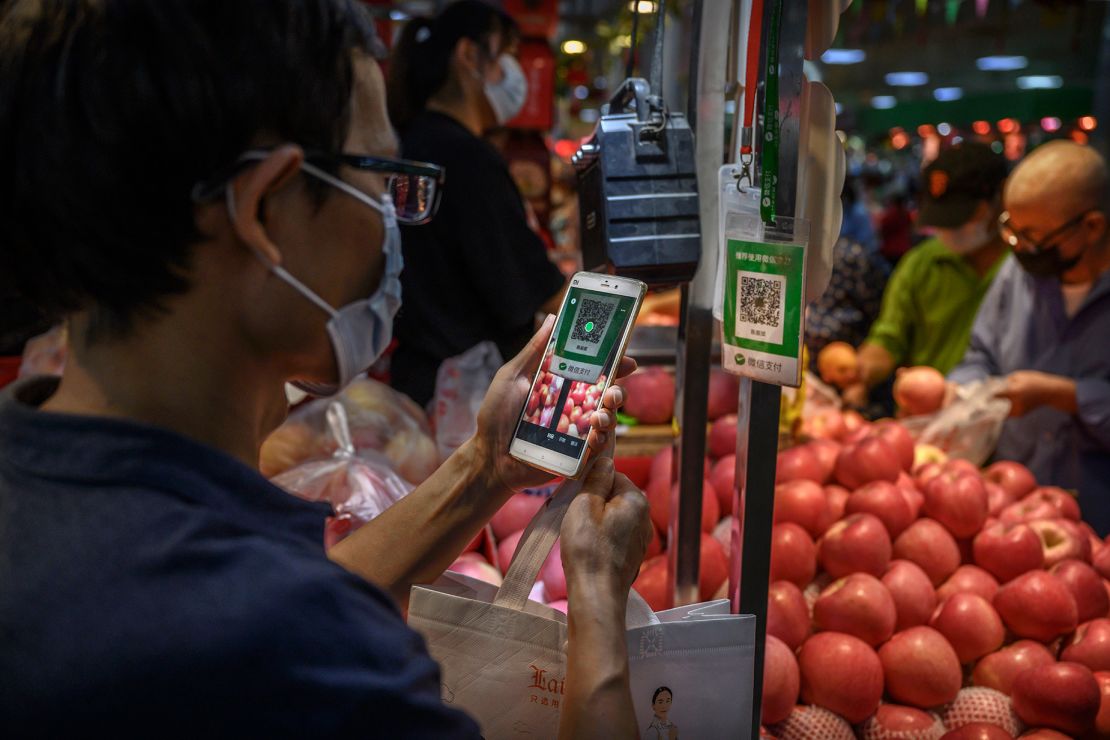
“The apps are not very friendly to foreigners, Chinese information often appears in the apps. However it is still easy for foreigners to set up the app themselves,” says Tian. (The China Guide has written a detailed article on how to set up your Alipay account.)
If you’d like to avoid the app, you may have to just exchange cash and stick with restaurants and hotels that take international credit cards. Even though cash is technically accepted, not everyone – cough, taxi drivers, cough – is happy to take it. Small bills will be useful as many small business owners may not have change.
Beijing, meanwhile, has introduced the “Beijing Pass,” an all-in-one travel card that allows you to pay for public transportation and tickets at many of the attractions. It can be purchased at airports and most metro stations.
In short, not all attractions, hotels and restaurants take credit cards.
But that might be changing.
The Chinese government recently announced in a statement that “domestic and overseas bank cards should be accepted in all three-star and above tourist hotels, 5A-level and 4A-level national tourist attractions, national and provincial tourist resorts, as well as national tourism and leisure districts.”
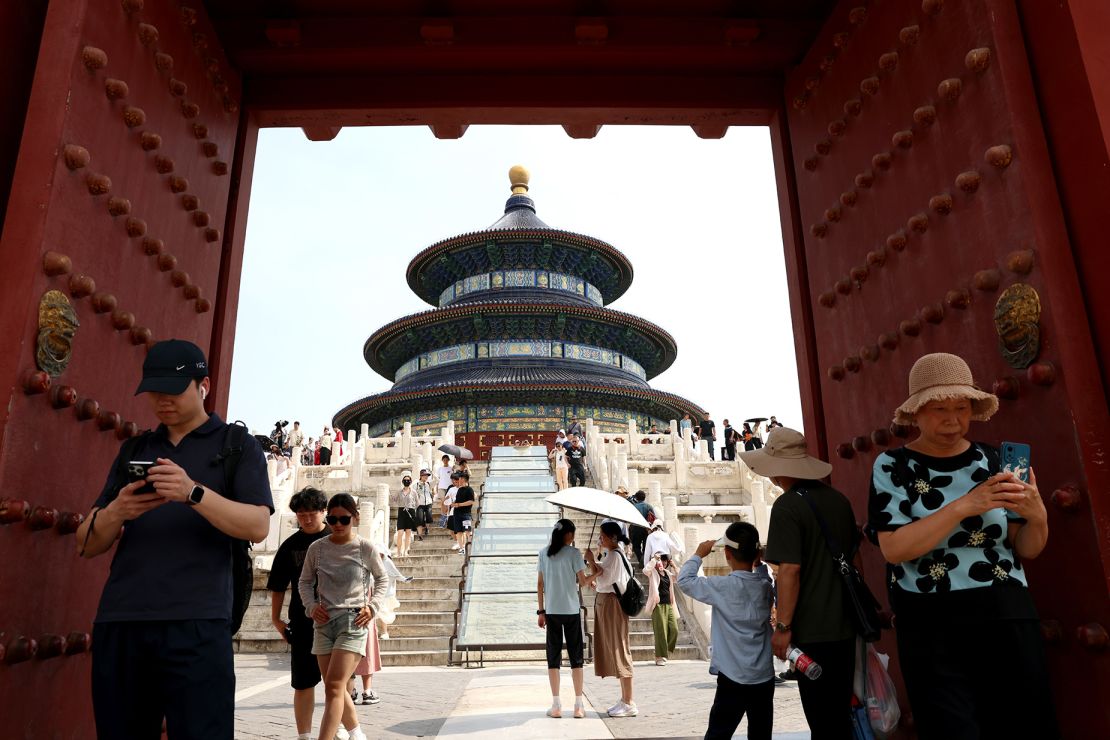
China claims to have one of the lowest crime rates in the world.
But it’s not potential physical harm or threats targeting tourists that have prompted some countries to issue travel warnings and advisories to leisure tourists thinking of visiting.
The United States has imposed a Level 3 travel advisory for mainland China under its four-level warning system and has urged citizens to “reconsider travel” “due to the arbitrary enforcement of local laws.”
Canada, meanwhile, advises its citizens to exercise a high degree of caution in China “due to the risk of arbitrary enforcement of local laws.”
Correira says they enjoyed their first experience in China, but admits they had some concerns before their journey.
“I think one of the main fears we had was regarding political safety,” recalls the doctor, noting they were aware of the US State Department’s Level 3 warning for China.
“Of course, I can only speak about my experience but I had the exact opposite sensation. I thought authorities were friendly and helpful and I think as long as everyone is respectful (as we should be no matter where we are), China is perfectly safe and I didn’t feel someone being hostile towards me at any moment,” adds Correira.
In addition to the above advice on setting up your mobile payments and purchasing a travel e-SIM before your visit, there are several handy apps that will make your trip go smoother. Here are a few of them:
Google Maps doesn’t work in China if you don’t have a VPN. Even if you do have one, it doesn’t work well.
Gaode Maps and Baidu Maps are two apps that work reasonably ok if you type in the address in pinyin, the romanization system for Chinese characters used in China.
For iPhone users, Apple Maps works in China as well.
“After we arrived, it was much more smooth sailing than anticipated since Apple Maps works perfectly fine and is updated with regards to public transportation,” Correira says of her experience.
This transportation app covers major subway systems in China, in English.
There is also a map function that highlights nearby points of interest, from restaurants to attractions.
Most subways in Chinese cities are modern and easy to navigate, with signs in both English and Chinese.
It’s worth noting there are security checks at many metro stations around China. Some are stricter than others, so prepare for bottlenecks during rush hour – and you may not be allowed on a train if you’ve been knife or scissor shopping.
Even if you don’t use WeChat for its payment function, it’s still useful if you want to exchange contacts with a friendly local, open a menu at a restaurant (many of the restaurants have uploaded their menus to WeChat) and buy a high-speed railway ticket.
Many of China’s major e-commerce businesses, from Didi (the Uber of China) to 12306 (the digital platform for the China Railway company) have their own WeChat widgets, or mini-programs.
If WeChat is too complicated for you and you simply want an app for payment, Alipay is the way to go. There is an international and a Chinese version of the app; go for the international version and it will allow you to link your international credit card to it.
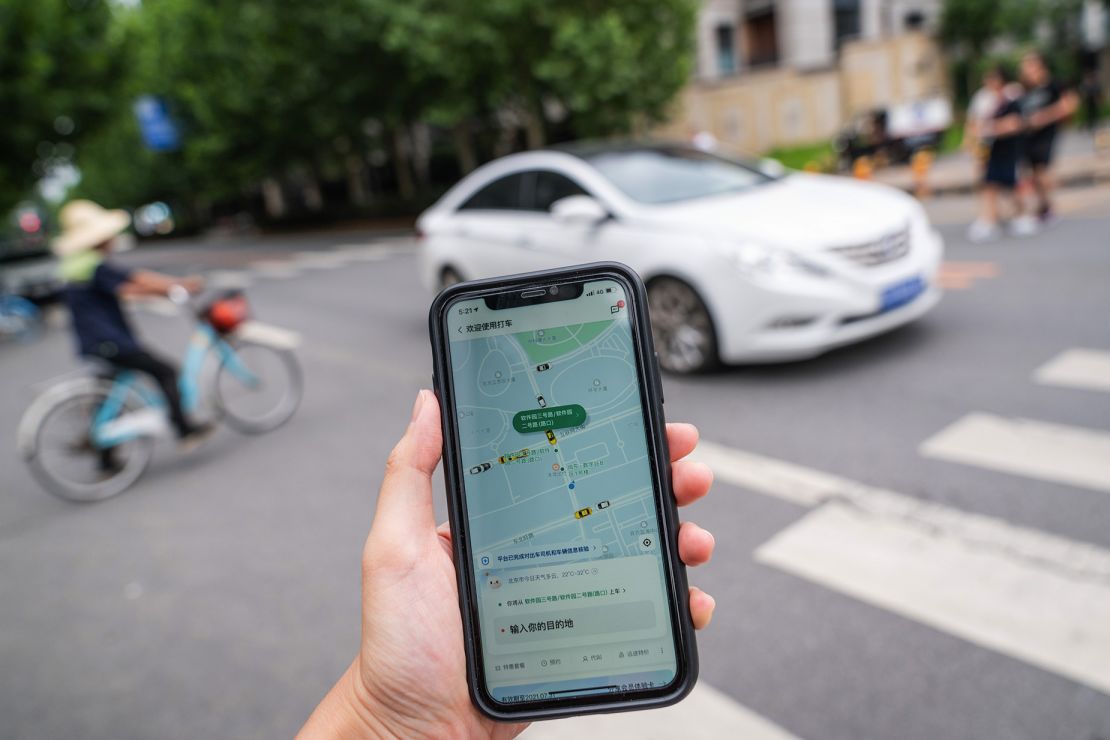
The car-hailing app of China. You can connect the app with an international credit card.
Didi can also be found within the Alipay and WeChat apps – so if you have one of the payment apps, you can directly hire a car from it without having to download the Didi app.
The international travel booking platform of Ctrip.
Trip.com is one of the easiest ways to book high-speed rail tickets, attraction tickets and hotels in China.
Baidu Translate is a free translation app created by Baidu, China’s leading search engine.
